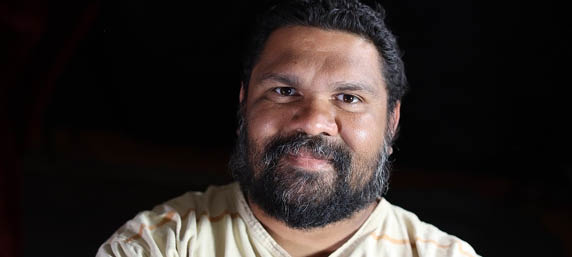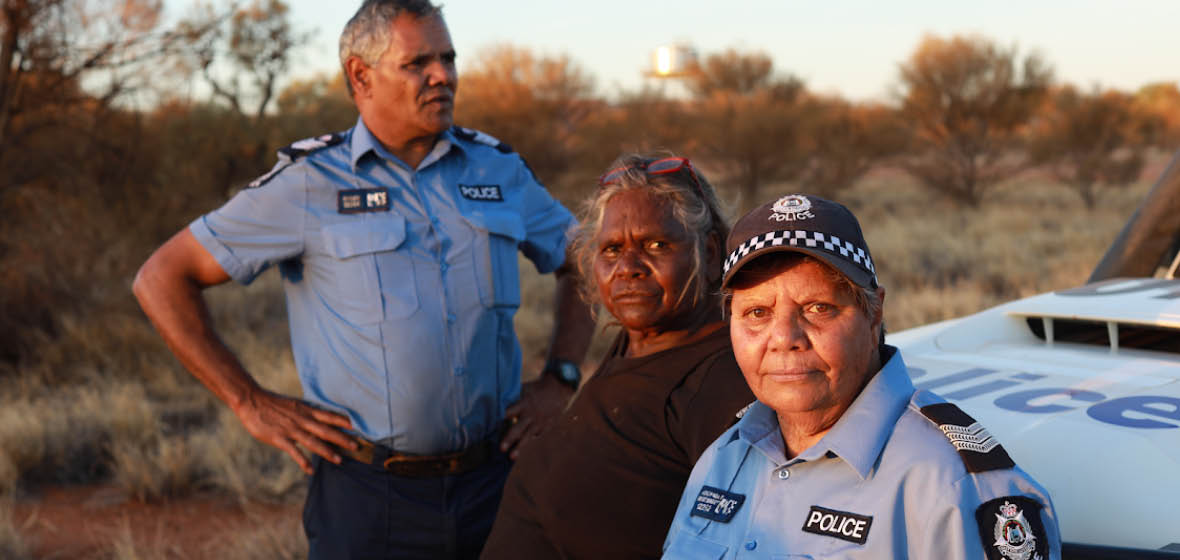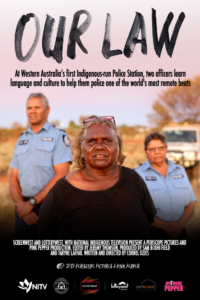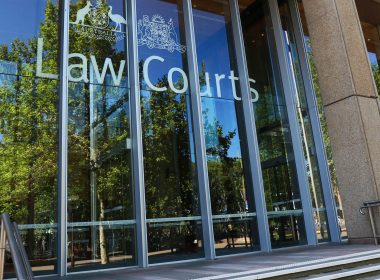For most of his life, the only interactions film director and Indigenous man Cornel Ozies had with police were negative.
He recalls his Indigeneity regularly attracting police attention where he grew up in Broome, Western Australia. Just last year in Sydney, he endured half an hour of interrogation by officers looking for a man of Indigenous appearance – despite Ozies showing them identification – as he walked to his teaching job at the University of Sydney.
It’s why, when Ozies heard rumours of Australia’s first all-Indigenous police station working collaboratively with members of a remote outback community in Warakurna, Western Australia, he decided to make a film about it. The resulting documentary, Our Law, premiered at the 2020 Sydney Film Festival and will be broadcast on NITV on Monday 22 June.
“The station in Warakurna was doing things really differently,” Ozies told LSJ. “The respect, understanding of cultural difference and communication between officers and the community at was amazing. I had never seen anything like it before.”
Our Law follows officers Wendy Kelly and Revis Ryder as they work to build bridges between the justice system and largely Indigenous community of 230 people in Warakurna, an outback town 330km west of Uluru.
The film offers lessons to police forces around the nation about easing tensions between police and Indigenous communities and dismantling long-held prejudices. Ozies said these lessons were timely in the wake of recent Black Lives Matter protests, as well as the emergence on social media of a damning video showing an officer in Redfern sweep-kicking an Indigenous teenager to the ground.

“White police officers don’t always understand the aggression towards them because they aren’t taught the historical context. The aggression is not about the individual; it is towards the system and the situation,” said Ozies.
“Most of the time, communication breaks down. English could be their second or third language. An Indigenous person speaking to a police officer who doesn’t understand them might become frustrated. Things spiral.”
Sergeant Kelly, an Aboriginal woman who grew up in Perth, encountered many of the same cultural barriers that non-Indigenous officers struggle with in their dealings with Indigenous communities. She spends much of the film attempting to learn the language and build relationships with local people, earning respect for her efforts.
“Trying to get your tongue around some of those words was so tricky,” she admitted to LSJ.
“If you have that engagement between police and community, people relax a lot more and they’re not walking around on eggshells. If they’re in trouble, they know they can talk to us or ask for help.”
The NSW Police Force 2018-19 Annual Report shows 4 per cent of NSW police officers are Aboriginal or Torres Strait Islanders. This is a slightly higher proportion than is represented in the overall national population – of which Indigenous people represent 3.3 per cent according to the Australian Bureau of Statistics (ABS).
The statistics surrounding Indigenous imprisonment are more dire: as many as one in three inmates in adult prisons are Indigenous, according to the Australian Institute of Health and Welfare (AIHW). Data released by AIHW in May shows Indigenous young people aged 10–17 are 16 times as likely to be under supervision by the criminal justice system as non-Indigenous young people.
When asked whether all-Indigenous police stations could help to close this gap in city regions like Sydney, Sergeant Kelly told LSJ, “I don’t see why not”.
“I do think we need to introduce cultural awareness training to all police officers,” she said.
“I’d also love to see more legal documents done in [Indigenous] language. In Warakurna we were trying to get bail papers translated and produced in language. If a person can’t even read their bail conditions, how can we expect them to get it right?”
Ozies said he hoped lawyers would watch the film to help them empathise with Indigenous clients. He also hoped to inspire regulatory or legal changes that would place police under greater scrutiny and limit the extent of discretionary power that officers may exploit.
“I hope the film informs and influences cultural changes in the police force. Education and cultural competence are the keys to change,” he said.
Audiences can watch Our Law on NITV on Karla Grant Presents on Monday 22 June at 8.30pm or purchase tickets to an early virtual screening at Sydney Film Festival, running online from 10 – 21 June 2020.





